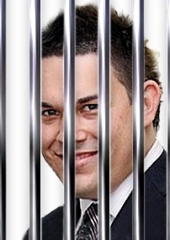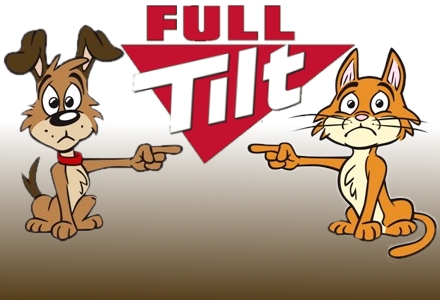 In typically inscrutable fashion, the first of three highly anticipated statements promised over the weekend by Full Tilt Poker has been released. Sorta. On Tuesday, Forbes’ Nathan Vardi published an article in which he referred to the release of a “one-page statement” by FTP. Trouble is, no one else but Vardi had actually seen this statement.
In typically inscrutable fashion, the first of three highly anticipated statements promised over the weekend by Full Tilt Poker has been released. Sorta. On Tuesday, Forbes’ Nathan Vardi published an article in which he referred to the release of a “one-page statement” by FTP. Trouble is, no one else but Vardi had actually seen this statement.
A poster on the 2+2 forum contacted Jeff Ifrah, the lawyer representing FTP kingpin Ray Bitar and other FTP principals in a class action lawsuit filed by irate players. Ifrah, who originally informed the world of the imminent arrival of these statements, was quoted as saying: “[The statement] was sent to Pokerstrategy. I don’t know why it is not up and how it got to Forbes.” Suffice it to say, at this point, the poker community is not the least bit surprised that FTP can’t even manage to issue a press release without cocking it up.
After a few hours confusion, Vardi himself released the purported statement, which reads, in full:
As is obvious from the events that have transpired since April 15th, Full Tilt Poker was not prepared for the far-reaching, US government enforcement effort of Black Friday.
The events of Black Friday came on the heels of prior government enforcement activities and significant theft. Over the two years preceding Black Friday, the US government seized approximately $115M of player funds located in U.S. banks. While we believed that offering peer-to-peer online poker did not violate any federal laws—a belief supported by many solid and well-reasoned legal opinions — the DOJ took a different view. In addition, as was widely reported, a key payment processor stole approximately $42M from Full Tilt Poker. Until April 15th, Full Tilt Poker had always covered these losses so that no player was ever affected. Finally, during late 2010 and early 2011, Full Tilt Poker experienced unprecedented issues with some of its third-party processors that greatly contributed to its financial problems. While the company was on its way to addressing the problems caused by these processors, Full Tilt Poker never anticipated that the DOJ would proceed as it did by seizing our global domain name and shutting down the site worldwide.
Over the last four months, Full Tilt Poker has been actively exploring opportunities with outside investors in order to stabilize the company and pay back our players. At least six of those groups, including hedge funds, operators of other internet businesses and individual investors, have visited Dublin to inspect the operation. We have recently engaged an additional financial advisor through an investment banking group to assist us in our search for an infusion of cash as well as a new management team to restore the site and repay players. While any deal of this nature is necessarily complex given the current regulatory environment, our players should know that Full Tilt Poker is fully committed to paying them back in full and restoring confidence in our operations.
 It’s not 100% clear from the statement if FTP is claiming that 100% of this $115m seized by the DoJ came from its own accounts. The $42m theft is presumably a reference to disgraced Australian payment processing figure Daniel Tzvetkoff (pictured left), who was accused of pilfering tens of millions of dollars from FTP, PokerStars and other companies via his former company Intabill. Tzvetkoff was arrested in Las Vegas in April 2010 on bank fraud and money laundering charges, and is believed to have turned state’s witness in exchange for not having his ass ‘processed’ nightly in federal prison.
It’s not 100% clear from the statement if FTP is claiming that 100% of this $115m seized by the DoJ came from its own accounts. The $42m theft is presumably a reference to disgraced Australian payment processing figure Daniel Tzvetkoff (pictured left), who was accused of pilfering tens of millions of dollars from FTP, PokerStars and other companies via his former company Intabill. Tzvetkoff was arrested in Las Vegas in April 2010 on bank fraud and money laundering charges, and is believed to have turned state’s witness in exchange for not having his ass ‘processed’ nightly in federal prison.
The 2010/11 third-party processing issues refer to the DoJ war on poker eCom that left companies unable to move money between US players and the sites. We now know that, in an ill-advised bid to steal a little of PokerStars’ thunder, FTP decided to credit its players deposits even though it couldn’t actually debit the money from their bank accounts. This shortfall was originally pegged at $60m, but more recent reports suggest it may have been as much as $128m.
Regardless, given the extent of this war on eCom and the toll it took on FTP’s operations, FTP’s claim to have been shocked – shocked! – that the DoJ would seize its domain seems more than a little disingenuous. It also wouldn’t explain why PokerStars – who also had their domain hijacked on Black Friday – were able to pay back their US players within weeks, and continue to operate outside the US as we speak.
But it’s the last para of FTP’s statement that will probably be considered the most alarming by players, in that it details no less than six potential investors who were motivated enough to make the trip to Dublin to go over FTP’s books, yet none of whom apparently came away thinking it was worthwhile making a deal.
